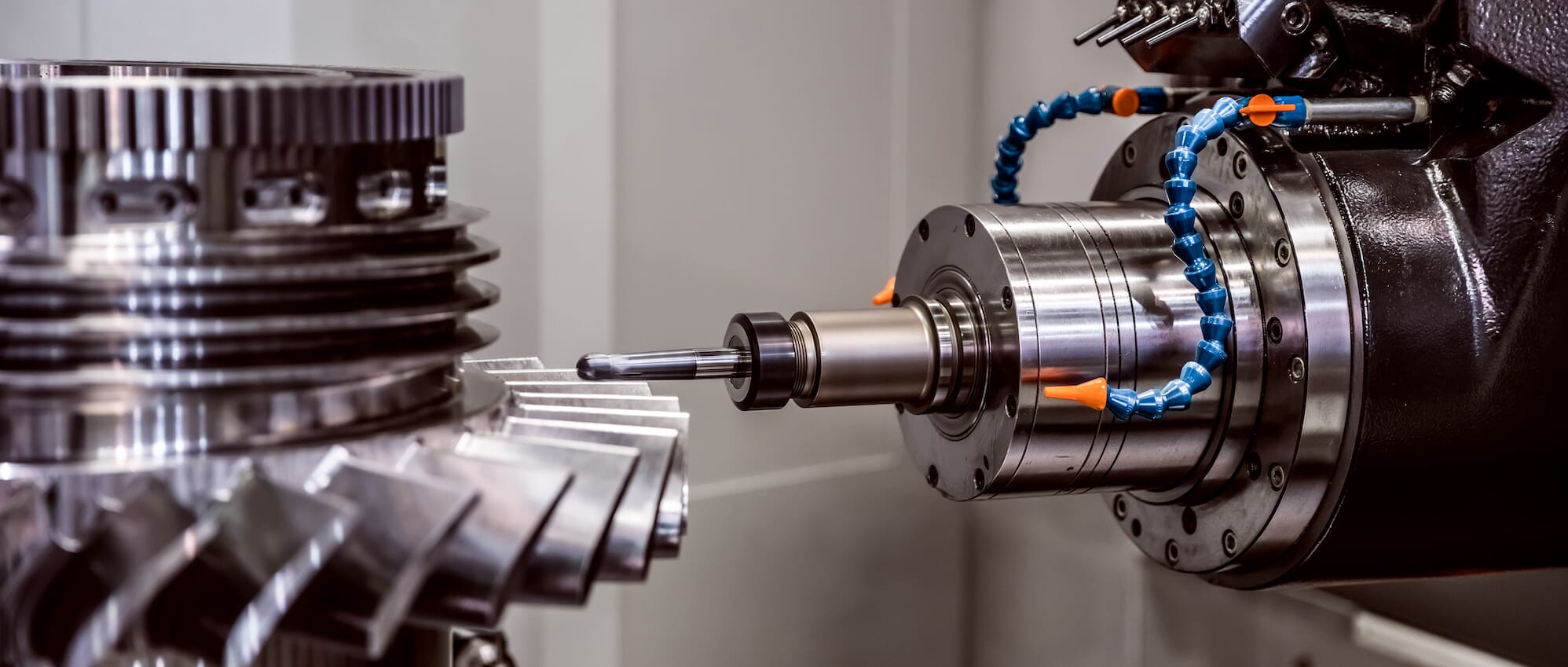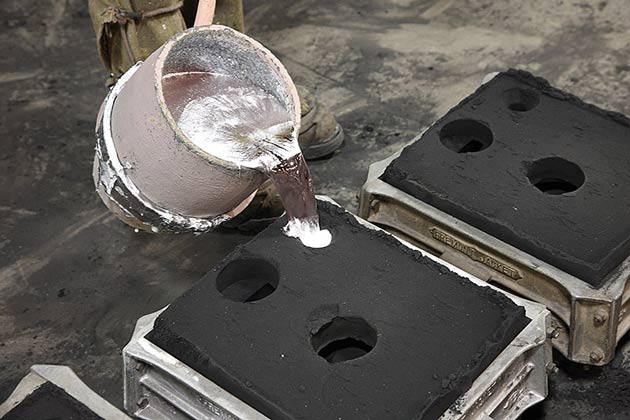The Alcast Company Ideas
The Alcast Company Ideas
Blog Article
The 9-Second Trick For Alcast Company
Table of ContentsThe Single Strategy To Use For Alcast CompanyOur Alcast Company StatementsThings about Alcast CompanyAbout Alcast Company6 Simple Techniques For Alcast CompanyThe Main Principles Of Alcast Company
Chemical Contrast of Cast Aluminum Alloys Silicon promotes castability by decreasing the alloy's melting temperature level and enhancing fluidity during casting. Furthermore, silicon contributes to the alloy's strength and wear resistance, making it valuable in applications where durability is essential, such as automobile parts and engine components.It also improves the machinability of the alloy, making it less complicated to process into completed products. In this way, iron adds to the general workability of aluminum alloys.
Manganese adds to the strength of aluminum alloys and enhances workability. Magnesium is a light-weight aspect that gives stamina and impact resistance to aluminum alloys.
A Biased View of Alcast Company
It permits the manufacturing of lightweight elements with superb mechanical residential properties. Zinc boosts the castability of aluminum alloys and helps control the solidification process during spreading. It enhances the alloy's toughness and hardness. It is frequently found in applications where elaborate shapes and fine details are required, such as ornamental castings and certain automobile parts.

The primary thermal conductivity, tensile strength, yield strength, and prolongation vary. Select ideal resources according to the efficiency of the target item generated. Amongst the above alloys, A356 has the greatest thermal conductivity, and A380 and ADC12 have the most affordable. The tensile limit is the opposite. A360 has the most effective yield strength and the highest elongation rate.
The Main Principles Of Alcast Company

In precision spreading, 6063 is fit for applications where intricate geometries and high-grade surface finishes are vital. Examples include telecommunication rooms, where the alloy's premium formability permits smooth and cosmetically pleasing layouts while preserving structural integrity. Similarly, in the Lights Solutions sector, precision-cast 6063 components create sophisticated and reliable lights fixtures that need intricate forms and excellent thermal performance.
It results in a finer surface finish and far better rust resistance in A360. Moreover, the A360 shows exceptional elongation, making it suitable for facility and thin-walled parts. In precision casting applications, A360 is well-suited for markets such as Consumer Electronics, Telecommunication, and Power Devices. Its boosted fluidness permits complex, high-precision elements like mobile phone cases and communication device housings.
The 5-Second Trick For Alcast Company
Its one-of-a-kind buildings make A360 an important selection for accuracy casting in these sectors, enhancing product toughness and quality. Aluminum alloy 380, or A380, is an extensively made use of spreading alloy with several distinct characteristics. It provides superb castability, making it an optimal selection for accuracy spreading. A380 exhibits good fluidness when molten, guaranteeing detailed and detailed molds are accurately replicated.
In accuracy spreading, aluminum 413 radiates in the Customer Electronic Devices and Power Equipment sectors. This alloy's superior rust resistance makes it a superb option for outside applications, guaranteeing durable, sturdy items in the pointed out markets.
Top Guidelines Of Alcast Company
Once you have actually made a decision that the aluminum die casting procedure is suitable for your task, a crucial next step is choosing the most appropriate alloy. The aluminum alloy you select will significantly impact both the casting process these details and the homes of the end product. As a result of this, you need to make your choice carefully and take an educated technique.
Identifying one of the most appropriate aluminum alloy for your application will indicate evaluating a large variety of features. These relative alloy features comply with the North American Die Casting Association's guidelines, and we've separated them into 2 groups. The very first category addresses alloy qualities that affect the production procedure. The second covers qualities affecting the residential or commercial properties of the end product.
The Greatest Guide To Alcast Company
The alloy you pick for die casting directly affects a number of aspects of the casting procedure, like exactly how very easy the alloy is to deal with and if it is vulnerable to casting issues. Hot breaking, additionally referred to as solidification breaking, is a common die casting issue for light weight aluminum alloys that can result in inner or surface-level rips or fractures.
Particular light weight aluminum alloys are much more vulnerable to hot breaking than others, and your choice should consider this. It can harm both the cast and the die, so you ought to look for alloys with high anti-soldering residential properties.
Corrosion resistance, which is already a noteworthy quality of light weight aluminum, can differ considerably from alloy to alloy and is a vital characteristic to take into consideration depending on the environmental conditions your product will be subjected to (aluminum foundry). Put on resistance is another residential or commercial property generally looked for in aluminum items and can set apart some alloys
Report this page